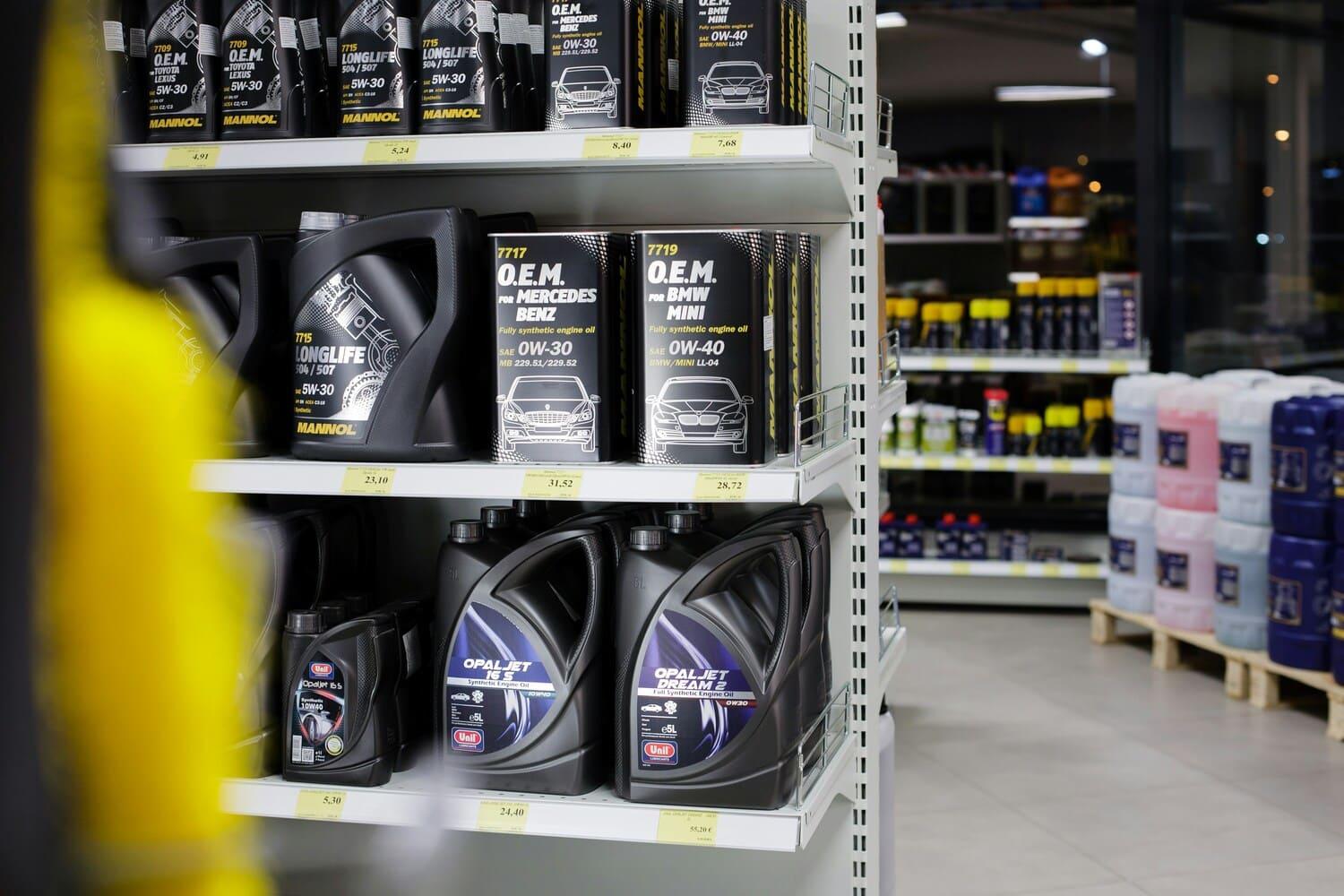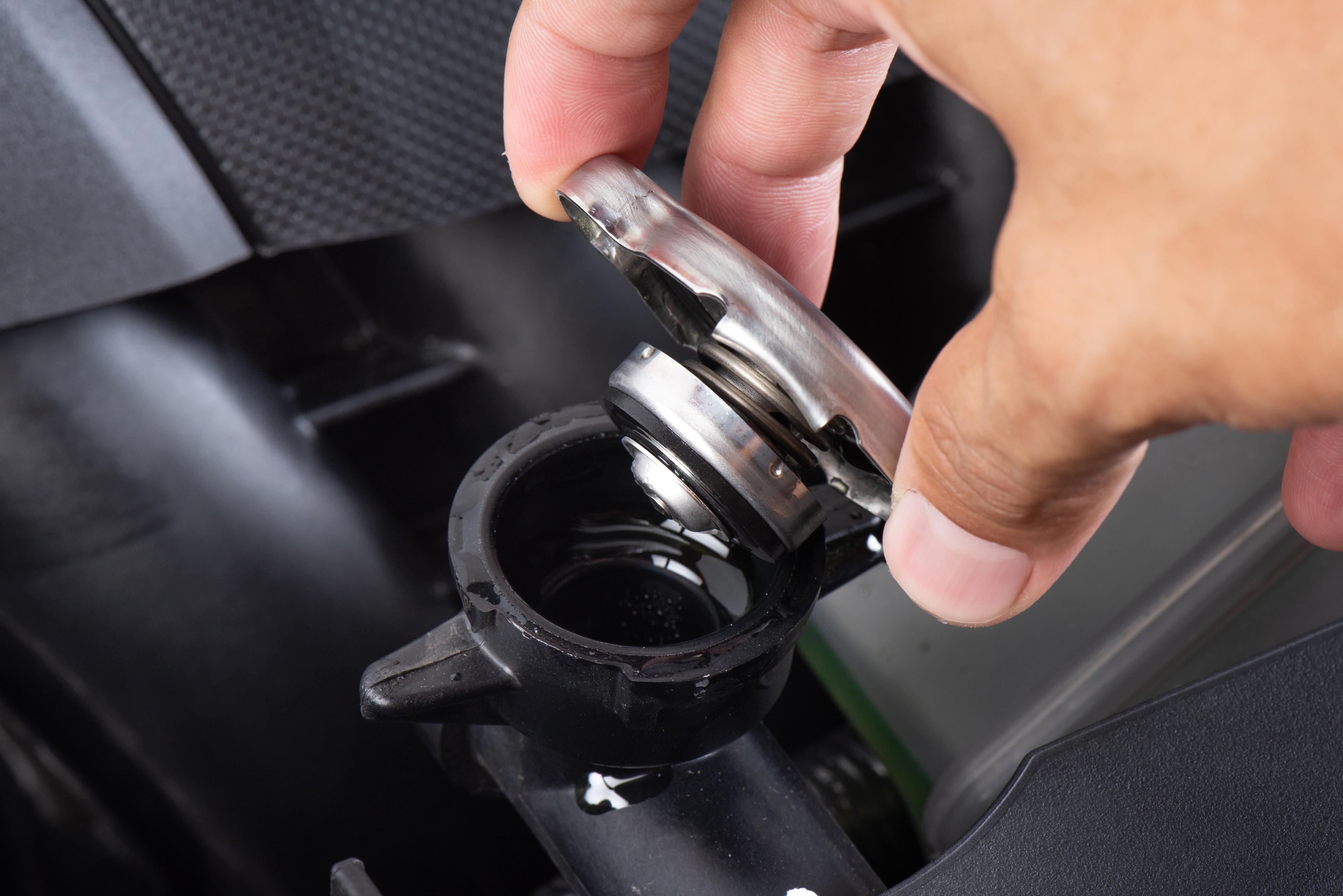
What oil is best for my car?
Oil is essential in any engine, as it lubricates to prevent wear and heat. Unlike older cars, today’s vehicles require a specific type of oil. So, modern drivers must be on top of the kind of oil needed.
Ensuring your car has the correct oil isn’t impossible, though! “What oil should I use for my car?” you’re in the right place. Today, we’re covering the main types of oil and their benefits to help you decide which is best for you. Scroll down to become an oil expert in minutes.
What oil should I use for my car?
Modern cars require different oil types, which will be listed in your vehicle handbook. However, you can also reach out to the dealer or a garage to find out which is needed for your car.
Factors that affect the type of oil you need include:
Car make
Car model
Condition of your car
Your driving style
When in doubt, contact your mechanic or consult your vehicle handbook. You must double-check which oil is needed before putting any old type of oil in, as this may damage your engine.
Engine oils come in different grades, specifications, and viscosities. But more about this further on in the blog!
Why do I have to check the oil level?
You should regularly check your engine oil level to keep your engine healthy and to ensure your car is road-safe.
Neglecting your engine oil levels might mean you miss a drop in oil levels. When your oil level drops, your engine may be damaged, especially if you have a modern car with a smaller sump. Oil may spend less time cooling down in the sump, so the hotter oil will wear out your engine.
When should I check my engine oil?
You should check your car’s engine every few weeks or before long journeys. It’s also important to check your engine oil if the dashboard warning light appears.
What does engine oil do?
Engine oil lubricates the moving parts of your car. Since the engine produces lots of heat, oil lubrication allows all parts to move without dangerous friction. Using the wrong or insufficient oil can lead to severe damage and an unsafe car.
But that’s not all that oil does! It also acts as an engine cleaner, collecting dust and dirt. This makes the engine safer and much more efficient.
Other benefits of engine oil include a cooler engine, reduced emissions, and better fuel economy.
The different types of engine oil
The main three types of engine oil are synthetic, semi-synthetic, and mineral. These names refer to the oil's composition and method of manufacture and affect their performance. Here’s all you need to know about each type:
Mineral
Often identified purely by the lack of the words ‘synthetic’ or ‘semi-synthetic,’ mineral oils were used before synthetic technologies took hold.
They are made entirely from mined crude oil, refined and processed similarly to other oil products. Since no chemicals are used, they can’t be called “synthetic.”
This is the most common and affordable type of oil. It’s also non-toxic, biodegradable, and prolongs your engine life.
Semi-synthetic
Semi-synthetic oils are a mixture of synthetic and traditional mineral oils. Synthetic oils are still often derived from crude oil but have a significant portion of additives and modifiers to improve performance.
This blend gives the oil a better performance than mineral oil but makes it cheaper than 100% synthetic car oil. Semi-synthetics are excellent for drivers who want the benefits of synthetic oil but not the hefty price tag.
Semi-synthetic oil is also suitable for cars that aren’t driven too often or only for short journeys.
Fully Synthetic
Synthetic engine oil is made from complex synthetic materials, such as esters and polyalphaolefins (PAOs). No mineral oil is used to make synthetic oil, although crude oil still forms the base for many synthetic oils. Manufacturers don’t give away specific recipes, but the crude oil component is heavily ‘synthesised’ and chemically modified.
Fully synthetic oil is generally the best-performing oil. It’s recommended for cars with extended oil change intervals and high-performance vehicles. In most brands, fully synthetic oil is the recommended type.

Can you mix engine oils?
No, mixing different engine oils is not advisable, as this can harm your car’s engine.
The different additives and viscosities in oils may interact with each other in unpredictable ways. This can cause unwanted damage, such as:
Increased wear and tear
Sludge build-up
Irreparable damage
Problems throughout the vehicle
These issues make your car unsafe to drive, leaving you, your passengers, and other road users in potential danger.
If you must top off your engine oil, try to use the same type of oil already in your car. Drain the old oil out when changing oil types before adding new oil.
If you don’t know what’s already in your car, you can check your owner’s manual or visit a reputable garage for professional advice.
Bumperallows you to split the cost of repairs over interest-free instalments at thousands of partners nationwide.
Find a service partnerWhat are oil weights and viscosity?
Engine oil viscosity is the oil’s resistance to flow. Higher viscosity oil is thicker and flows slower, whereas low viscosity oil is thin and flows faster. Treacle is an example of a liquid with a high viscosity; water has a fairly low viscosity, and petrol is lower still.
Viscosity is critical in engines and machinery. A moving system has specific design features to use certain types of lubrication. For example, a joint with slow and limited movement, such as a suspension component, would use seals and a very thick or viscous lubricant, such as grease.
A high-revving engine with very tight tolerances and need for heat dissipation needs a lubricant free-flowing enough to be pumped around effectively but thick enough to provide adequate lubrication.
Another critical property of engine oil is that it must operate effectively at cold and hot temperatures. This is important as car engines often go from completely cold to operating temperature multiple times daily.
The SAE system of oil designation allows the easy labelling of oil for both viscosity and temperature performance.
What are oil ratings?
Oil ratings show the performance and suitability of engine oil. This helps you (or your mechanic) decide which is best for your vehicle.
Let's take an example: the oil required for a 2010 Volkswagen Golf TDI is 5w30. Let's break that down:
5: This is the cold viscosity rating, chosen from a scale between 5 and 50. This car needs a rating of 5
W: This designates winter. This defines the standards at which the cold viscosity rating is taken, most oils use this standard for ease
30: This is the viscosity when at operating temperature.
So, how does this compare against other oils? If we used 10w30 oil, the engine would suffer from excessively thick oil in cold conditions. But once up to temperature, the oil would be perfectly suited.
In reality, the difference between the two would be indiscernible. However, using the incorrect oil could cause undue strain on your engine or invalidate the warranty.
The best tip is to use the recommended oil as stated by your owner’s manual.
What do the numbers on engine oils mean?
The numbers on engine oils tell you about the oil’s viscosity performance. The most common options include 0W-20, 5W-30, and 10W-30.
0W-20 is a synthetic oil designed for cars needing thin oil. However, it’s not recommended for cars operating in hot weather.
As mentioned above, 5W-30 is a synthetic oil good for cold weather. It’s thinner than 10W-30 and suitable for most modern cars.
10W-30 is a conventional oil that’s compatible with most cars. It’s an excellent choice for both cold and hot weather.

What is a SAP rating?
A SAP rating tells you how many additives (sulphated ash, phosphorus, and sulphur) are used in the motor oil. These are added to protect the engine.
While suitable for some cars, others can be harmed by SAPs. So, it’s critical to determine whether your car needs a low SAP oil before refilling it.
For example, in diesel-engined cars, a diesel particulate filter (DPF) is used in the exhaust system to reduce harmful emissions. These can become clogged with soot and other components of exhaust gas, including sulphated ash and phosphorus.
What are low SAP oils?
Low SAP oils, as the name suggests, contain less of these elements than normal oils. Therefore, they have a reduced effect on a diesel’s DPF.
If your car is diesel, it will require low SAP oil. Some diesels do not have a DPF, typically over 20-year-old ones.
Examples of low SAP oils include:
Pennzoil Ultra Platinum 5W-30
Shell Rotella T6
Mobil 1 ESP Formula 5W-30
What is high-mileage motor oil?
High-mileage motor oil is designed specifically for cars with over 100,000 miles on the odometer. This oil provides more protection for older engines with more wear and tear. It’s also thicker than standard engine oil and contains additives to reduce leaks, oil consumption, and engine deposits.
If you need high-mileage motor oil, select one specifically designed for your car make or model. Read the label carefully or ask an expert before refilling.
Can I use manufacturer-specific car oil?
Yes, you can use a specific oil for your car make and model. Some manufacturers, including BMW, Audi, Mercedes and more, have developed their own grading systems for oil, often including designations for long life, heavy duty and more.
If you are unsure of which specific oil your car should use, check your owner’s manual, where the exact oil and how often it should be changed will be listed.
What oil should I use for my car? The takeaway
Hopefully, this blog has introduced you to the different types of engine oil which you should use for your car. Remember, don’t mix engine oils and select the one stated in your owner’s manual. If in doubt, work with a local garage for some expert assistance.
Bumper offers interest-free car repairs and servicing. So, if your car’s service is due, enter your vehicle registration and postcode on our website to apply for monthly instalments at thousands of garages and dealerships nationwide.
Find a service partnerAuthor - Joseph Law
Joseph has been writing about cars for over seven years and writing for Bumper for over two, blending his passion for automobiles with a talent for storytelling.
Joseph has written about engineering and cars for Autozilla, Komaspec, and several engineering manufacturers. When he's not writing or tinkering with one of his five cars, Joseph dreams of owning an Alfa Romeo 33 Stradale.
Split your car repair cost over monthly repayments interest-free.
Split the cost of your next repair
Other related articles from our blog

Advice
5 min read
How much does a VW Polo coolant leak repair cost?
VW Polo coolant leak repair costs can be anywhere from £50 to £450. Find out why prices range and see estimates for your repair cost online today.

Advice
5 min read
How much does a Volkswagen Tiguan Repair cost?
Volkswagen Tiguan repair costs can be anywhere from under £300 to over £800 depending on the car’s age and issue. See VW Tiguan repair costs online now.

Advice
5 min read
How much does it cost to repair a coolant leak on a VW Golf?
VW Golf coolant leak repair costs sit anywhere from £60 to £450, depending on the cause and severity of the issue. Find out what to expect from your repair now.